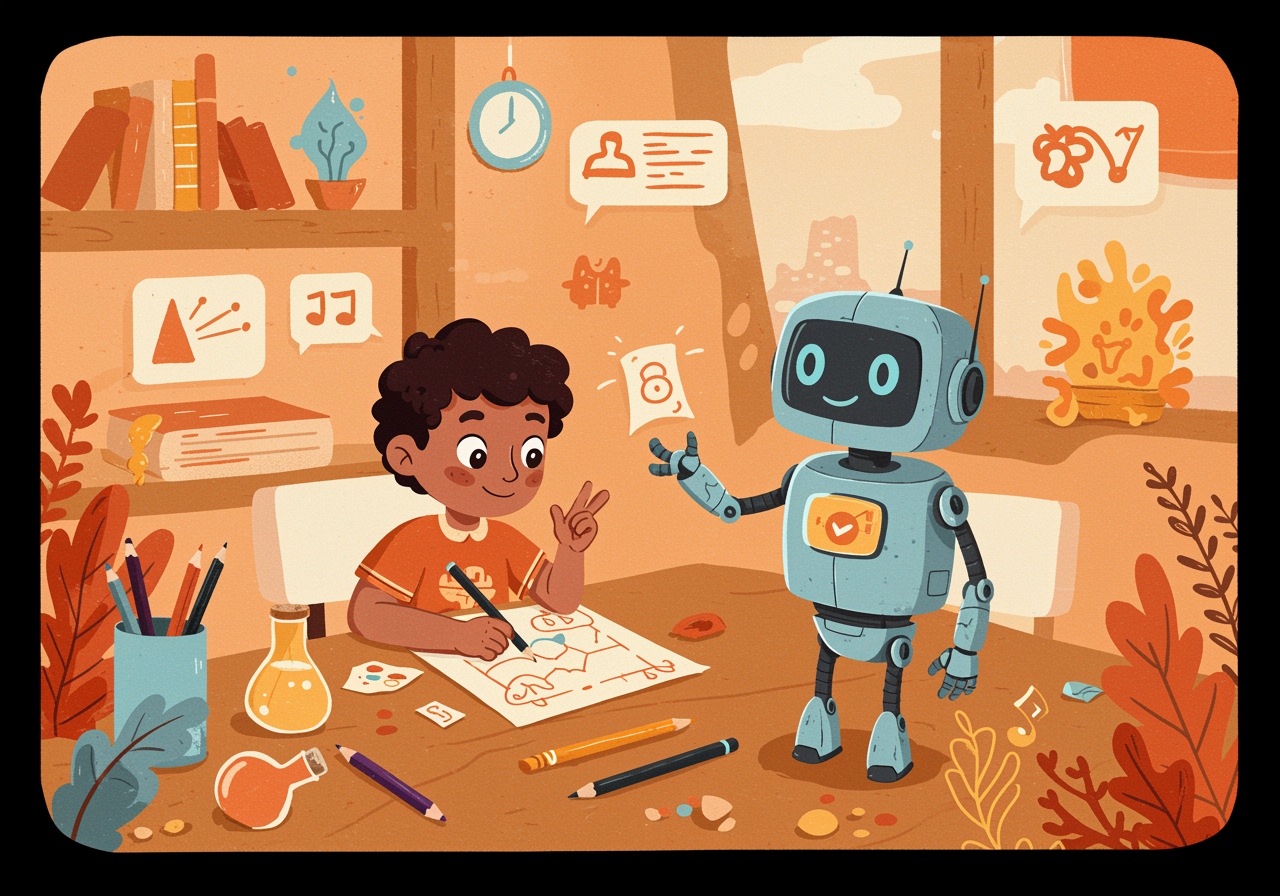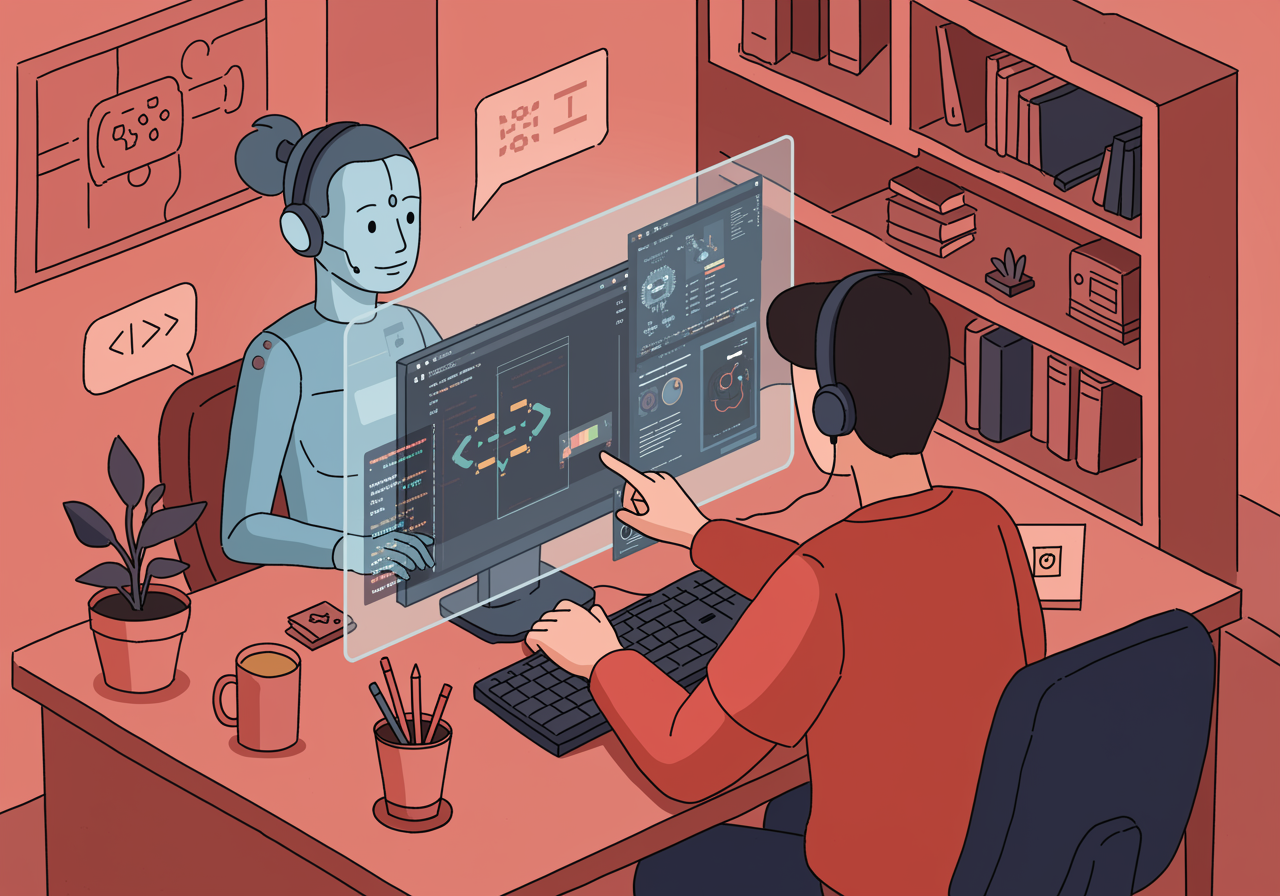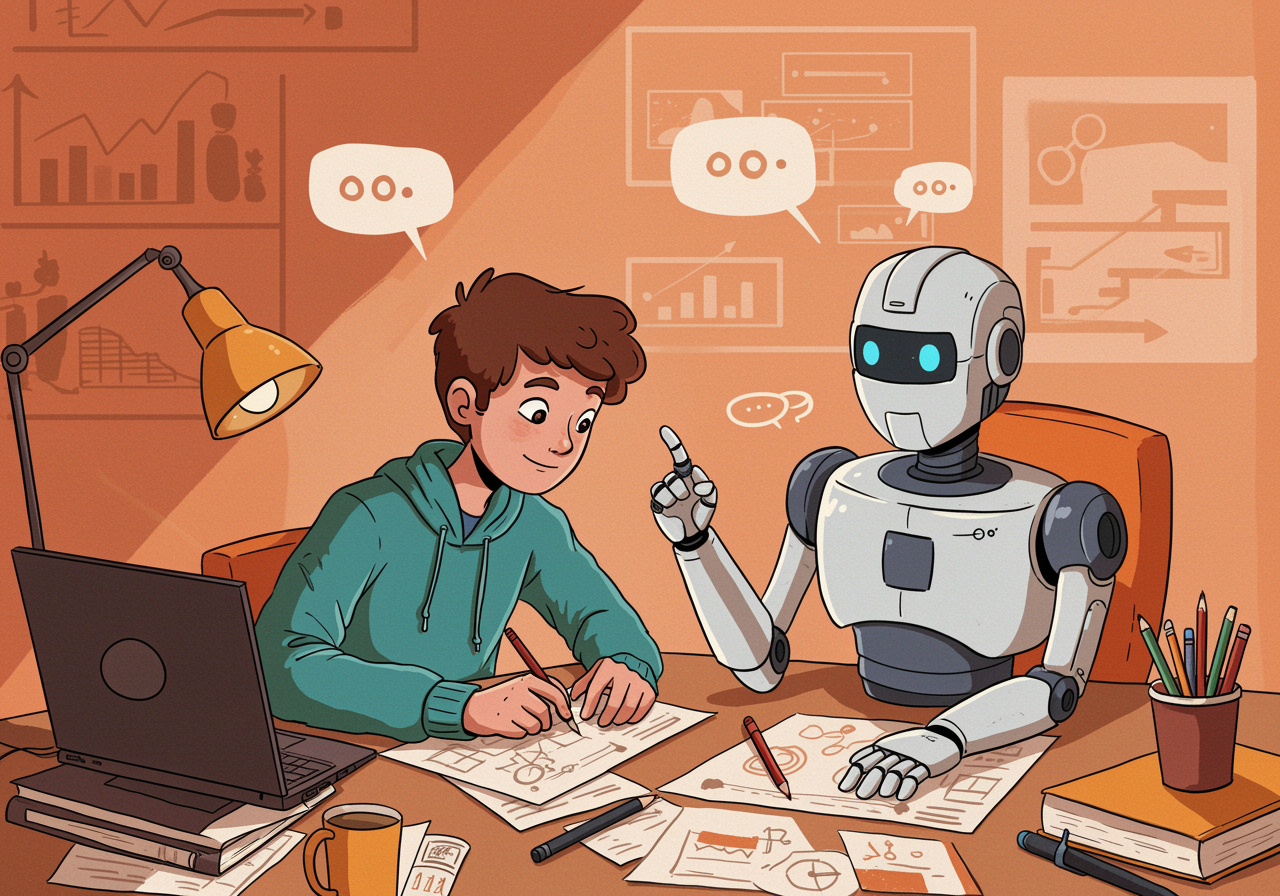Your Creative Superpowers: Why Humans + AI = Amazing Future Jobs
Discover how your imagination and heart will make you unstoppable in tomorrow’s world
Explore why creativity and human connection are your secret weapons for thriving alongside AI in future careers.
Overview
Think of AI as the ultimate tool—like a super-powered calculator or the world's fastest research assistant. But here's the amazing part: AI can't feel excitement when discovering something new, can't comfort a friend who's having a bad day, or imagine a completely wild solution that nobody's ever tried before. That's where humans shine! As AI handles more routine tasks, the jobs of the future will need what only humans can bring: creativity, empathy, imagination, and the ability to connect with other people in meaningful ways.

Understand in 30 Seconds
Get up to speed quickly
- AI is Your Super-Tool: AI is like having a really smart assistant that can crunch numbers, find patterns, and handle repetitive tasks super fast. But it can't feel, imagine, or truly understand what makes humans tick.
- Creativity Can't Be Coded: Your ability to come up with wild ideas, solve problems in unexpected ways, and create art that makes people feel something—that's pure human magic that AI can't replicate.
- Human Connection Rules: Whether it's teaching, counseling, leading a team, or just making someone's day better, jobs that require genuine human understanding and empathy will always need real humans.
- Best Teams Mix Both: The coolest future jobs will combine AI's speed and accuracy with human creativity and heart, creating solutions that neither could achieve alone.
Real Life Scenario
Situations you can relate to
Imagine you're designing a new video game. AI can analyze millions of games to suggest what features players usually like, create realistic graphics, and even write basic code. But who decides the game should be about a time-traveling pizza chef saving the universe? Who creates characters that players actually care about? Who figures out how to make the game fun instead of just technically impressive? That's all you! The AI gives you superpowers to build your vision faster and better, but the vision, the heart, and the 'why does this matter to people?' part—that's pure human creativity. What kind of game would you create if you had AI as your coding and design assistant?

Role Play
Spark a conversation with “what if” scenarios
What if you were a doctor in 2035 and AI could instantly diagnose most illnesses from a simple scan?
- Role play: Take turns being the doctor and patient. The 'AI' (parent) can give the diagnosis quickly, but the doctor (child) has to explain it with kindness, answer the patient's worried questions, and come up with a treatment plan that fits their life.
What if you were a teacher and AI could personalize lessons for every student's learning style automatically?
- Role play: Role-play a classroom where the parent is the AI providing perfect lesson plans, but the child-teacher has to inspire students, handle conflicts, and help kids who are struggling with confidence, not just academics.
What if you were an architect and AI could design structurally perfect buildings in minutes?
- Role play: The parent can be the AI creating 'perfect' technical blueprints, while the child-architect has to decide what kind of building would make people happy, solve community problems, or create spaces where people want to spend time.
FAQs
Frequently asked questions people want to know
Will AI really take over most jobs?
AI will change jobs more than replace them. New jobs we can't even imagine yet will be created, just like smartphones created app developers and social media managers that didn't exist 20 years ago.
What if I'm not naturally creative or artistic?
Creativity isn't just about art! It's about solving problems in new ways, connecting ideas differently, or finding better ways to help people. Everyone has creative potential in different areas.
How can I prepare for jobs that don't exist yet?
Focus on skills that make you uniquely human: critical thinking, collaboration, communication, adaptability, and emotional intelligence. These will be valuable no matter what new jobs emerge.
Examples in the Wild
See how this works day to day
- Netflix uses AI to recommend shows, but human writers, directors, and actors create the stories that make us laugh, cry, and binge-watch entire series (Netflix Technology Blog)
- Doctors at Johns Hopkins use AI to spot cancer in medical scans faster than ever, but human doctors still provide care, comfort, and treatment decisions tailored to each patient's life (Johns Hopkins Medicine)
- Spotify's AI creates personalized playlists, but human musicians, producers, and sound engineers create the actual music that moves us (Spotify Engineering Blog)
- Video game companies like Ubisoft use AI to create realistic landscapes and character movements, but human designers still craft the stories, characters, and experiences that keep players engaged (Ubisoft AI Research)
In Summary
What you should know before you start
- AI is becoming a powerful tool that handles data, calculations, and routine tasks, freeing humans to focus on creative and interpersonal work
- Creativity, empathy, critical thinking, and human connection are skills that can't be replicated by AI and will become even more valuable
- The best future jobs will likely combine AI's processing power with human imagination, emotional intelligence, and problem-solving creativity
- Instead of competing with AI, the key is learning to work alongside it as a super-powered teammate that amplifies your uniquely human abilities
Pro-tip for Parents
You got this!
If your teen seems worried about AI 'taking over,' try reframing the conversation around partnership rather than competition. Use examples from their own interests—if they love music, talk about how AI helps musicians create better sounds but can't write lyrics that truly speak to human experiences. If they're into sports, discuss how AI can analyze performance data, but coaches still need to motivate, strategize, and understand what each player needs to succeed.

Keep an Eye Out For
Find these examples in everyday life
- News stories about AI being used in creative fields like music, art, or writing—great opportunities to discuss what the human creators still bring to the process
- Examples of AI in healthcare, education, or customer service where human empathy and judgment remain essential
- Your teen's own experiences using AI tools for school projects—discuss what the AI helped with versus what they had to contribute themselves
Explore Beyond
Look up these related research topics
- How emotional intelligence and empathy are becoming key job skills in an AI world
- The psychology of human-AI collaboration and why diverse teams create better solutions
- How different cultures around the world are approaching AI integration in education and work